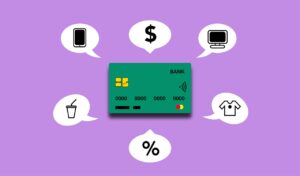

Good Debt and Bad Debt
Written by R. A. Stewart
Do you know the difference between good debt and bad debt? One needs to be used with caution while the other is to be avoided like the plague.
First the basics.
When you are borrowing money you are paying for the use of that money and that is called interest. This adds to the cost of what the money is used for. Therefore, it is important that you save and use your own money if at all possible.
There are some things which it may not be possible to use your own money such as a student loan or a mortgage because these are major investments, however, most people will contribute a portion of the money needed such as a house deposit.
Good Debt
Listed below are things which are considered to be good debt:
A Student loan
Mortgage
An investment with a higher expected return
Good debt helps to build your wealth.

Listed below are things which are considered to be bad debt:
Bad debt
Vehicle
Household appliances
Veterinarian bills
Travel
Consumables
The reason why these are bad debts is because you end up with little or nothing for your money.
Bad debt does not contribute to your financial well-being, it is detrimental to it.
It is important to know the difference between an asset and a liability. An asset increases your wealth while a liability reduces it.
How to manage debt levels
Pay off debt as fast as possible
Avoid paying high interest rates for consumable items
Stay within your budget
If you don’t have the money you don’t buy it.
Build an emergency fund; this would be a separate bank account from your every day personal account. An emergency fund will ensure that you have money on hand for anything unexpected which crops up.
People with debt do not have any discretionary spending money. These people will probably disagree, but honestly; going on an overseas holiday when one owes money to someone is irresponsible and selfish. It is like giving the middle finger to your creditors.
One should avoid credit cards like the plague. These are for greedy and selfish people. A good money manager will not own a credit card, because to them, “debt” is a dirty word.
Learn to live within your means and to stay within your budget. Prosperity is a matter of choice. If you don’t have any plan for increasing your wealth then you choose not to be wealthy. I do know of many people like this who purchase a lottery ticket every week and that is their only hope of becoming wealthy.
Do not envy those who drive around in a fancy car and live in an expensive house. For all you know these people could be up to their eyeballs in debt. Just live according to your own means and let others do the same.
To summarise
Good debt is when you borrow for an asset which has a payoff which makes it worthwhile paying the interest for the loan. Bad debt is when you borrow for something which has no lasting value.
About this article
You may use this article as content for your blog/website or ebook. The contents of the article may not be applicable to your personal circumstances, therefore discretion is advised.
Check out my other articles on www.robertastewart.com
“Retire with Little Money” is your guide to achieving financial freedom, even if you don’t have a large retirement fund. This practical ebook reveals creative strategies and smart budgeting tips to help you retire comfortably on a modest income. Learn how to cut unnecessary expenses, boost your savings with side gigs, and make the most of the resources available to you. With easy-to-follow advice and real-life examples, this book shows you how to build a sustainable retirement plan without relying on a hefty nest egg. Start planning today, and discover how you can retire sooner than you think!
https://robertalan.gumroad.com/l/sdzvl










